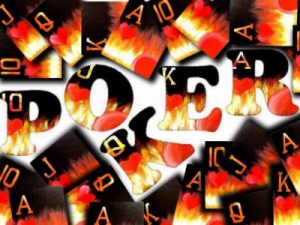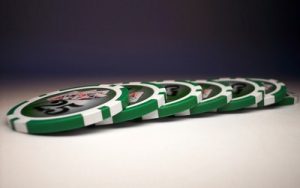 The game flow is the source through which the entire poker game flows. It is omnipresent and unavoidable. Every hand that has ever been played between two people will be processed by this source.
The game flow is the source through which the entire poker game flows. It is omnipresent and unavoidable. Every hand that has ever been played between two people will be processed by this source.
In previous articles, we talked about balance, constructed frequencies, ranges, and similar ideas. When it comes to value hands, since their occurrence is completely random, the only thing we can do is set up a range. And when we move on to bluffing, this is where we see how many decisions we can make, how many games are within games, how complex each moment can be. We can say that we want to bluff 66%, a nice big number, but the art of bluffing in each hand is reductionist, always different. Can these statements contradict each other?
Let's say you have a goal that the bluff frequency in situation X should be 50%. At first glance, if you bluff in this situation 50 times out of 100 during a match, you could say that you achieved your goal. However, if you didn't bluff at all in X1, X2, X3,…,X50, and always bluffed in X51, X52, X53,…, X100, you would naturally realize that the bluff frequency in the first 50 hands is 0%, and in the next 50 – 100%.
Let's expand this argument into a more realistic sequence. You might think that in a sequence of 10 hands you have created a balance, so the bluff model would look like this:
F· B · F · B · F · B · F · B ·F · B
You would probably call this a balanced sequence, where the bluff frequency is 50%.
However, we could also say that in each individual position of this sequence, the bluff frequency is 0% or 100%, depending on whether the example is even or odd. If we made this sequence more complex and not so perfectly repetitive:
B · F · B ·F · B · B · F · F · B · F
we could, albeit with less accuracy, expand each argument (each even case would now be equal to not 100%, but 80%).
It is clear where this argument is going. It may be that due to our human factor, our inability to generate randomness normally, we will never be able to create a large-scale statistical frequency of randomness. It may be that throughout a match, where we aim to maintain a bluff frequency of 33%, we predictably bluff more or less than our defined number and never actually get close to our goal at any given moment.
These considerations are completely valid. But let's say we install a random number generator on our computer, where we can input the frequency (e.g., 50%) and it will select B or F frequency. In that case, we should stop simulating randomness and instead use  the real ones.
the real ones.
If we actually did this, we would take a significant burden off our shoulders, be one step closer to computers, and escape the game flow.
The truth is, there have been people who tried to apply this method, such a program is really not difficult to create. And yet, as you look around, no one uses these programs. Why?
Because performing such an action, trying to make your game flow completely random, is the same as trying to achieve perfect balance. Such an action does not help to exploit the opponent, instead, it starts running away from exploitation altogether. The battlefield clearly shrinks. No matter what potential mistakes your opponent might make, they are all simply missed due to randomness. If in every situation your action is X, meaning you bluff 50% of the time completely randomly, then it doesn't matter at all how your opponent models their guesses, the only thing that becomes important is their overall guessing part. The game flow completely collapses.
The truth is that if a player's randomness is not perfect, there will always be someone who understands this area better. Either you make the opponent think incorrectly, or they guess correctly. This happens in every match. If we tried to choose when to use the randomness program, it would be when the opponent is stronger than us in this area. In every situation where they are not strong, we should play with the game flow, closely analyzing the player's language, observing their downs, and trying to outsmart them.
Randomness programs did not interest players also because reading and creating the game flow depends on skills that can be learned through practice. Using the program only slows down your growth as a poker player. Only through trials, errors, and challenges can one improve.
Where is the best place to play poker?





